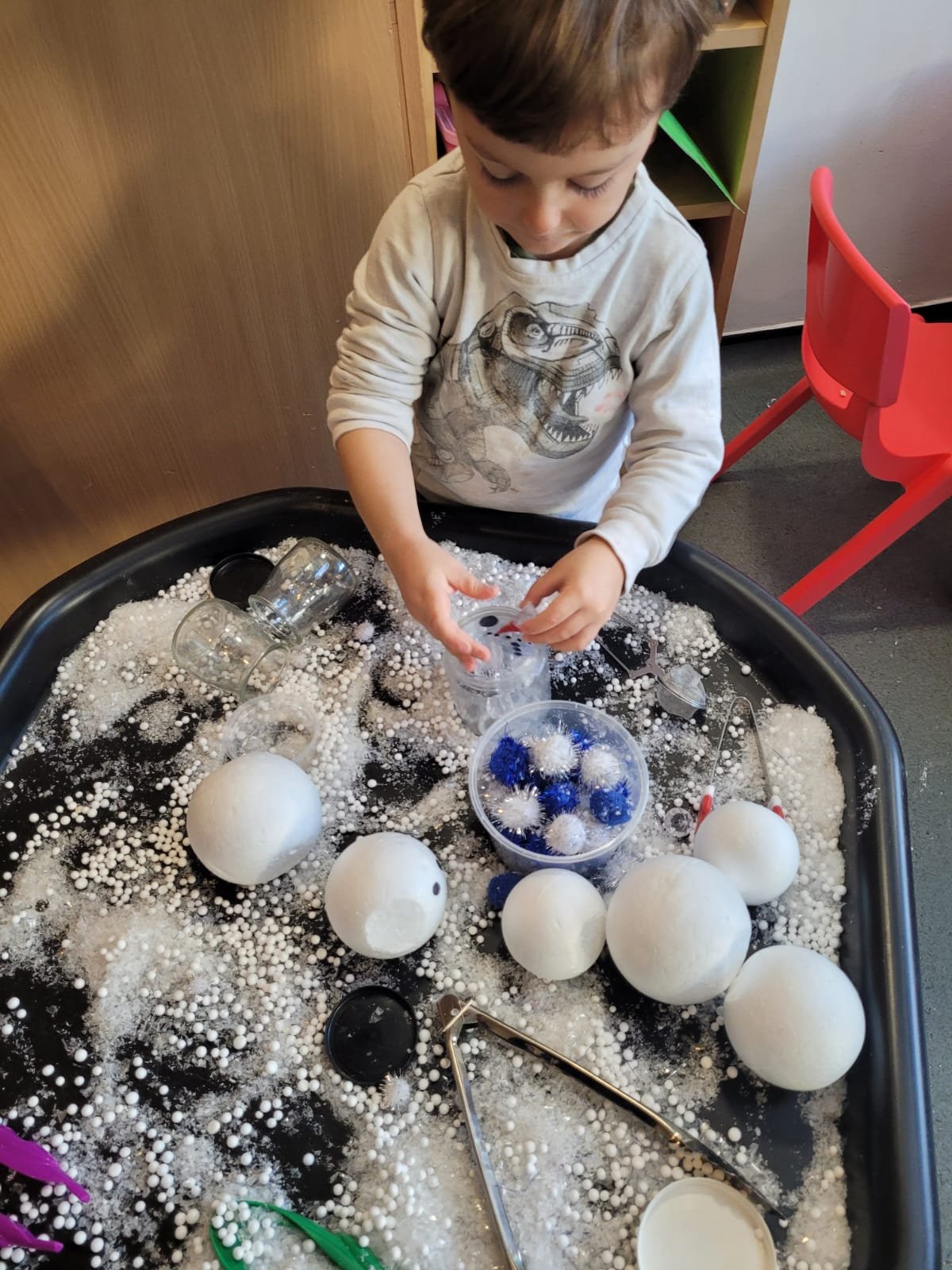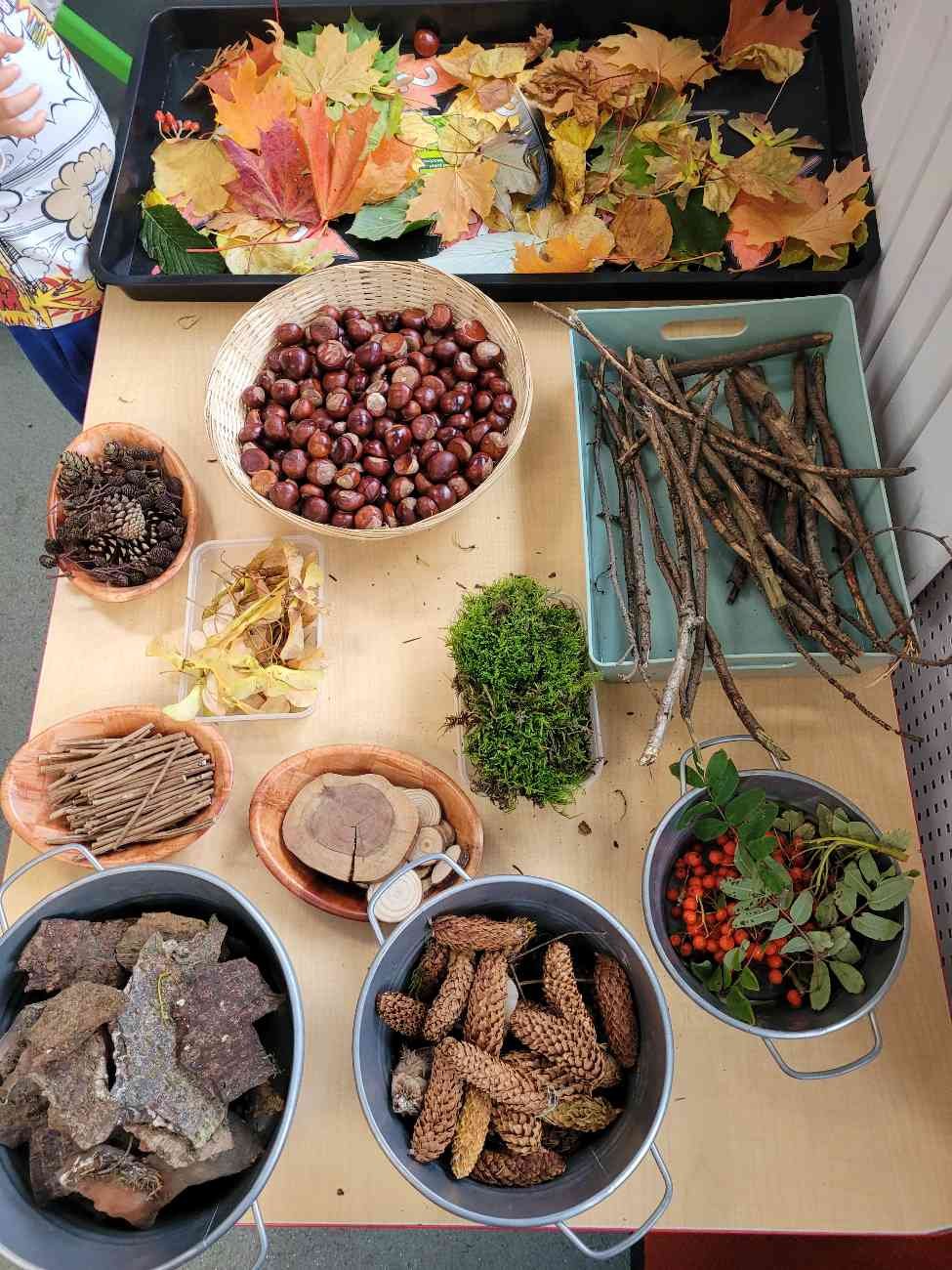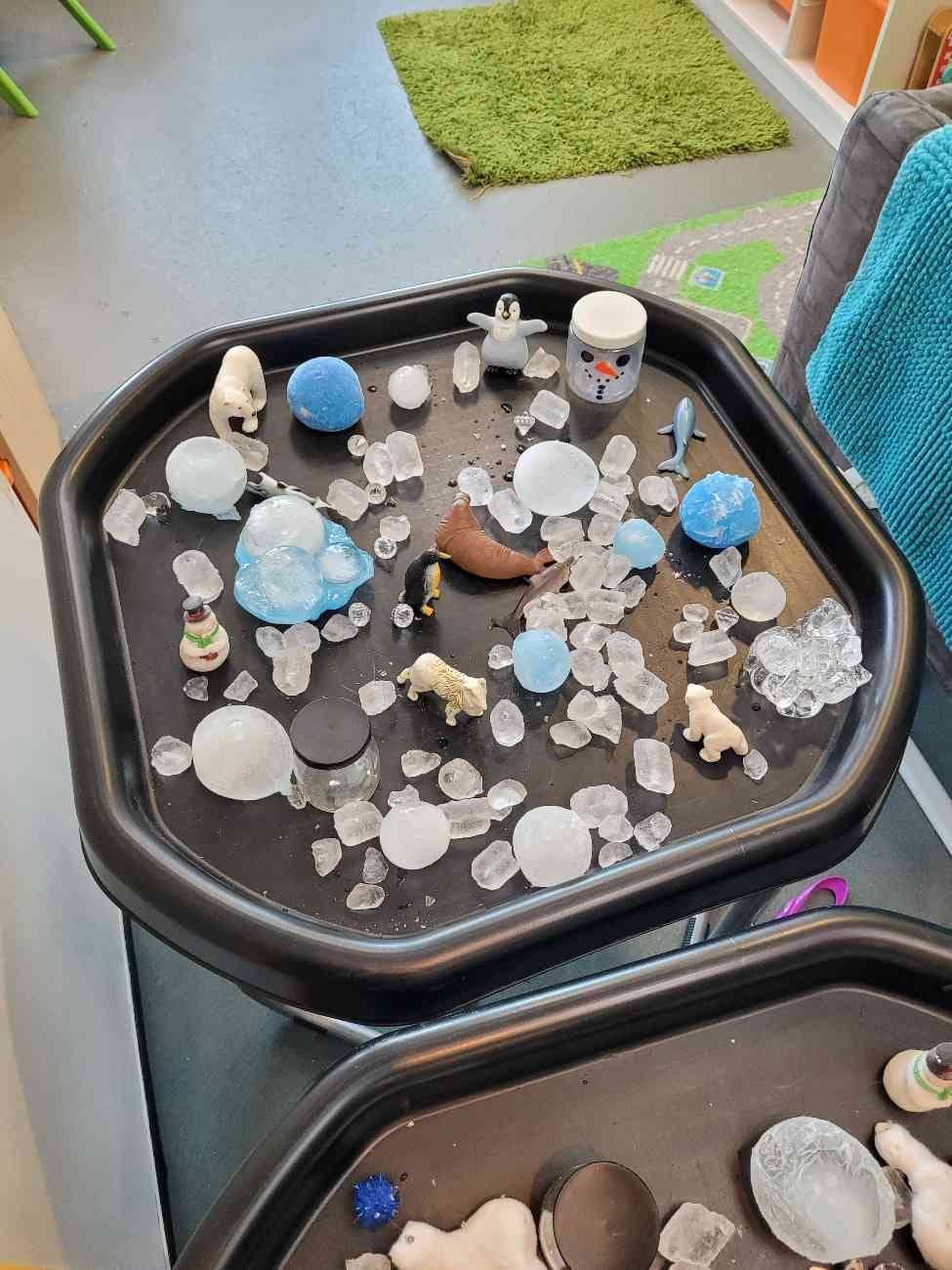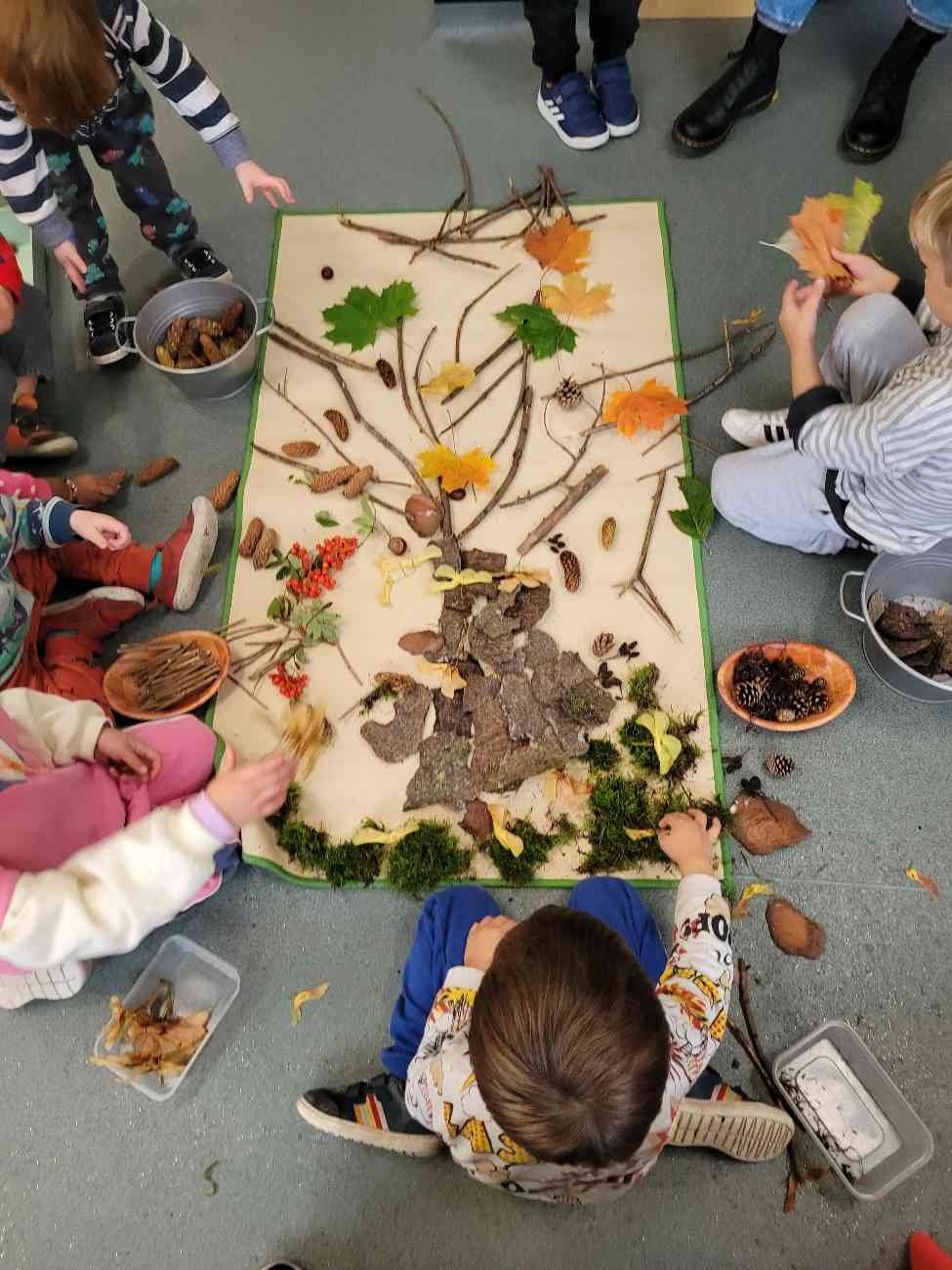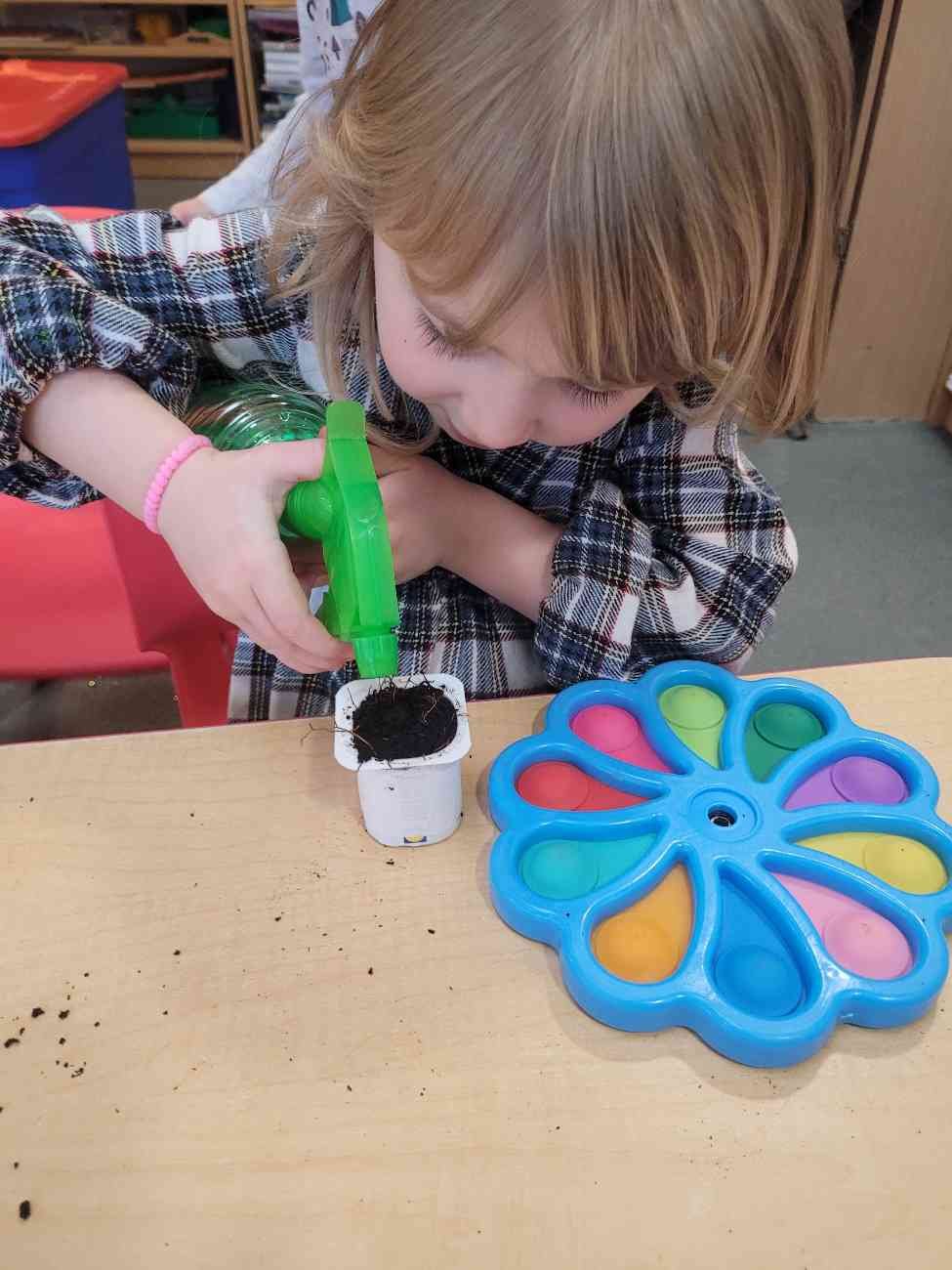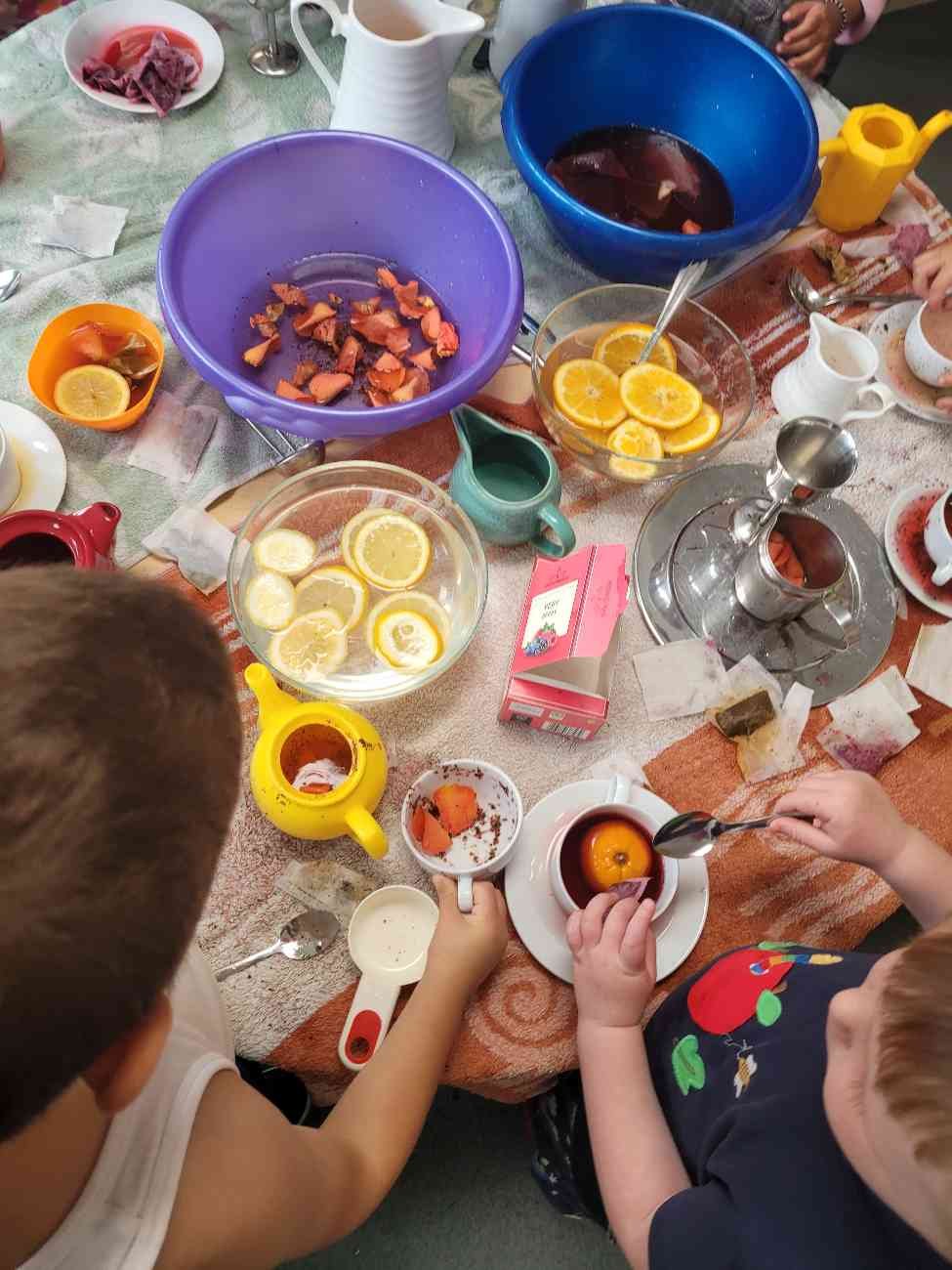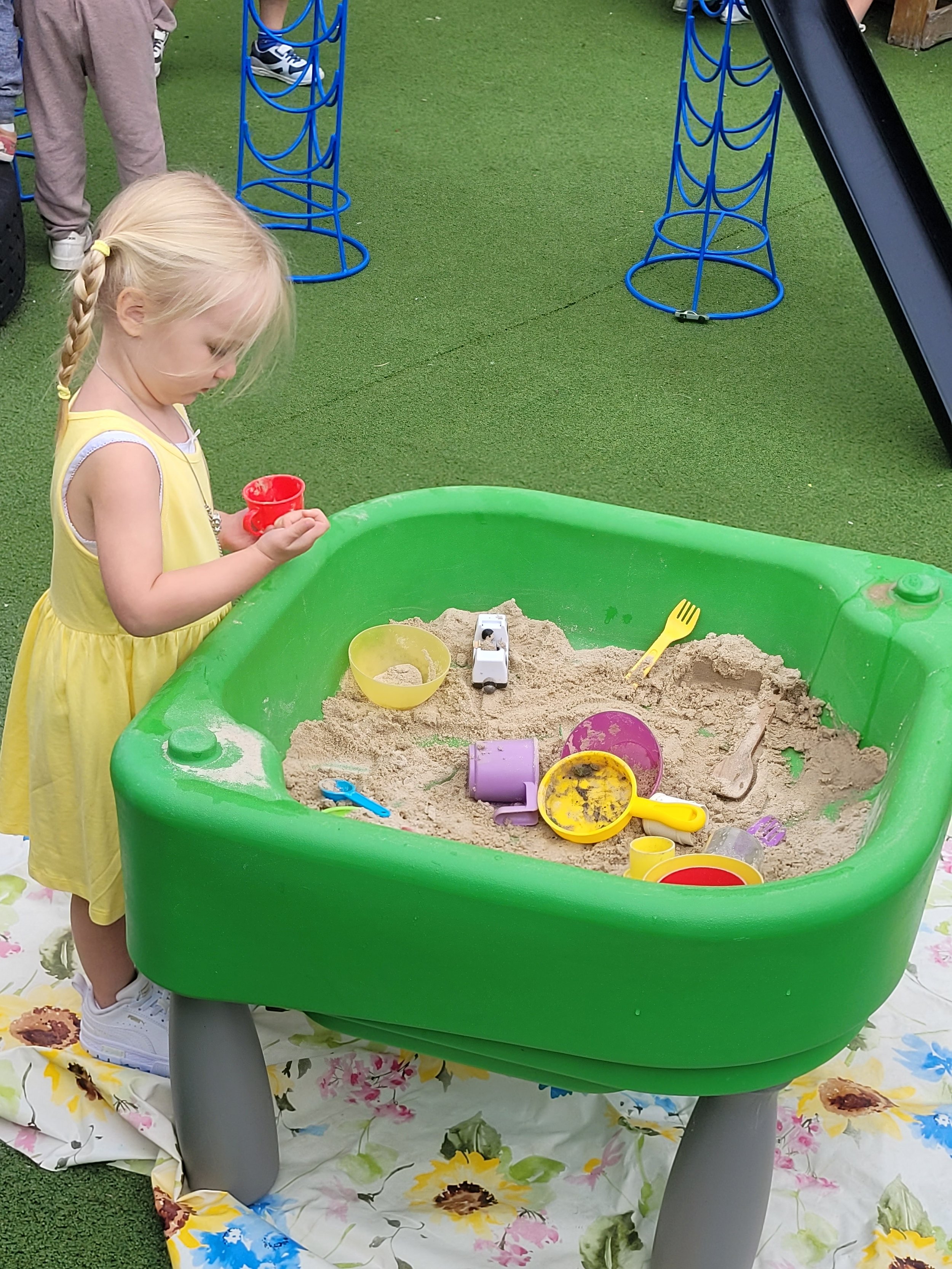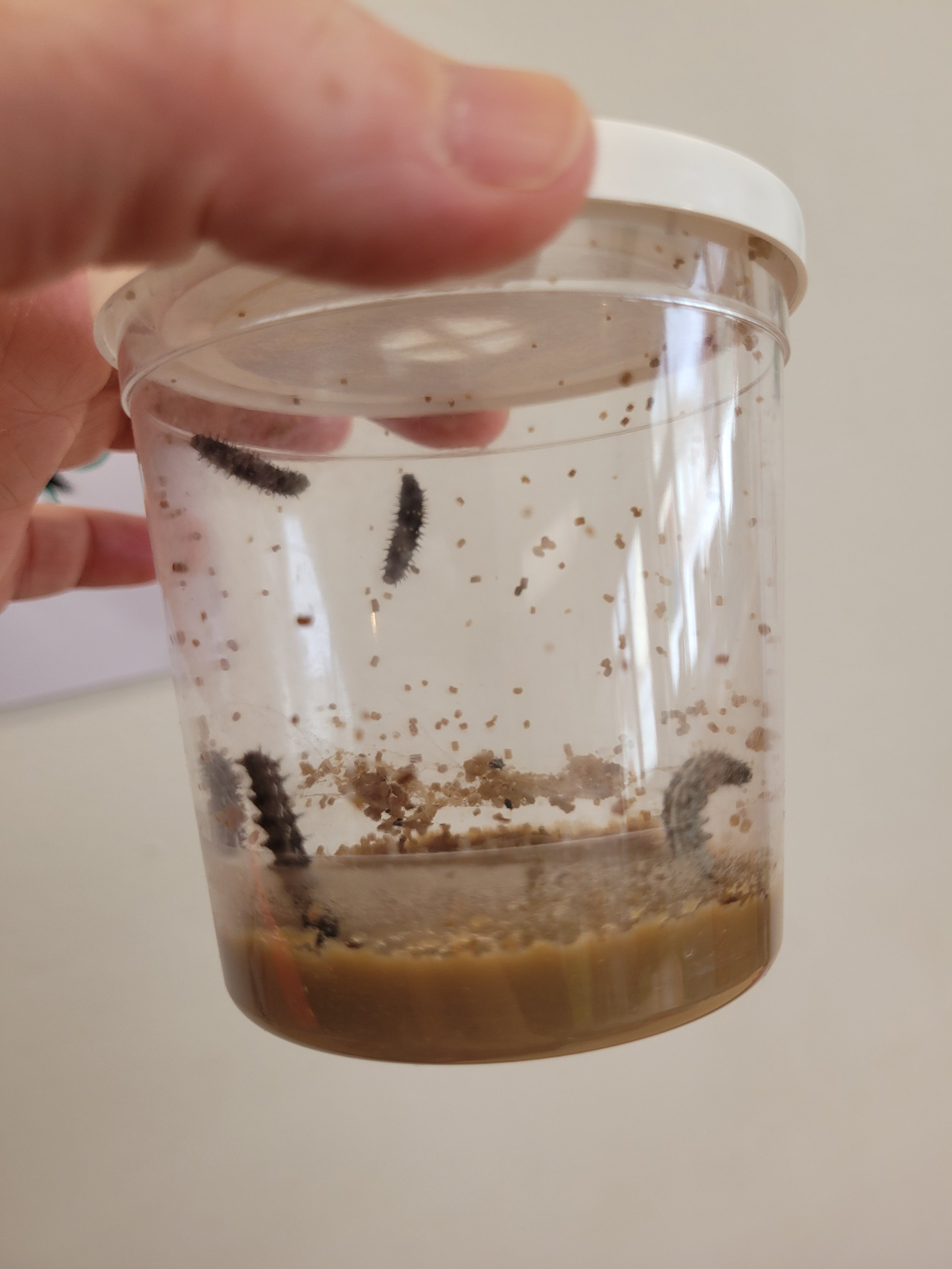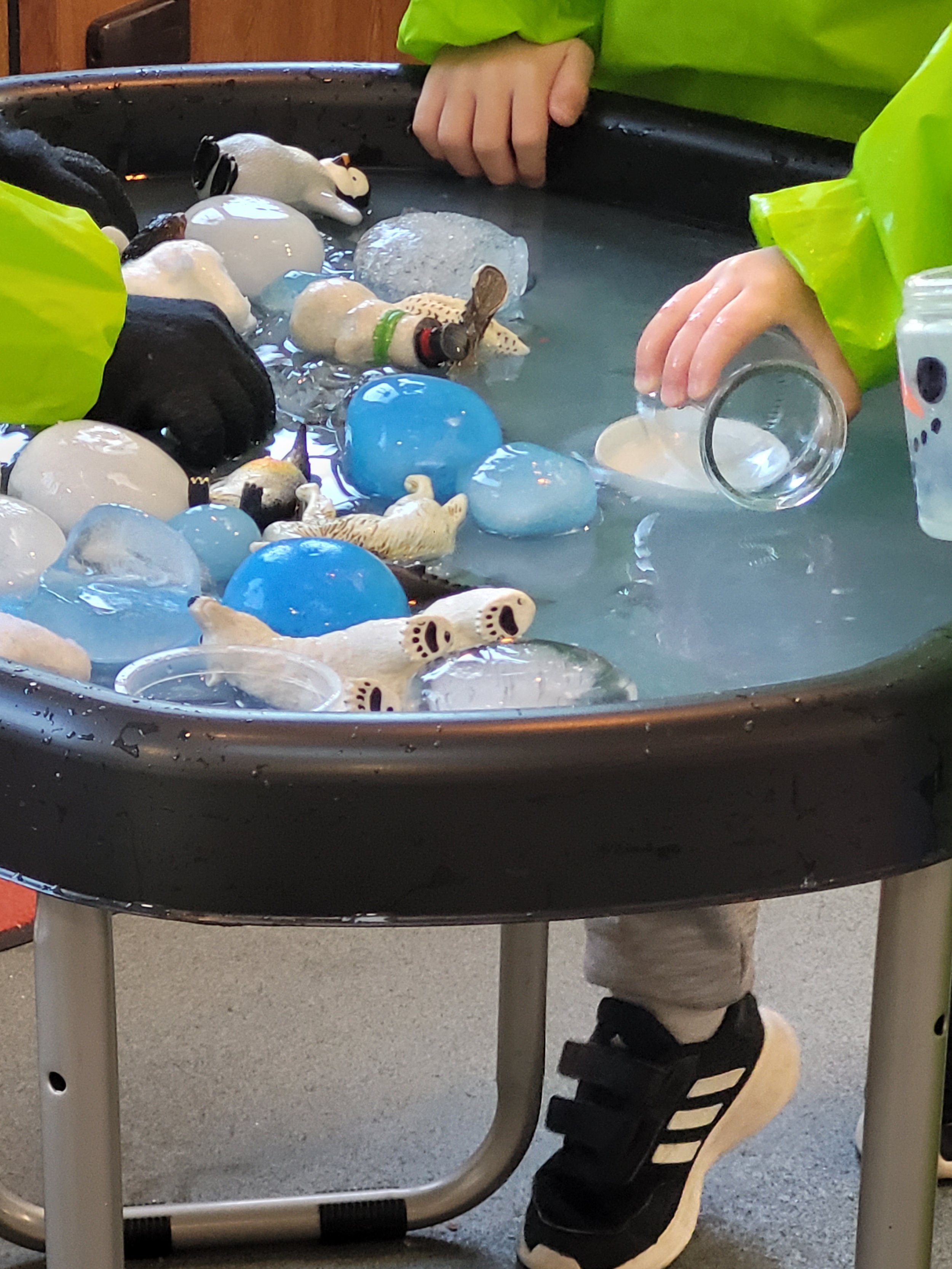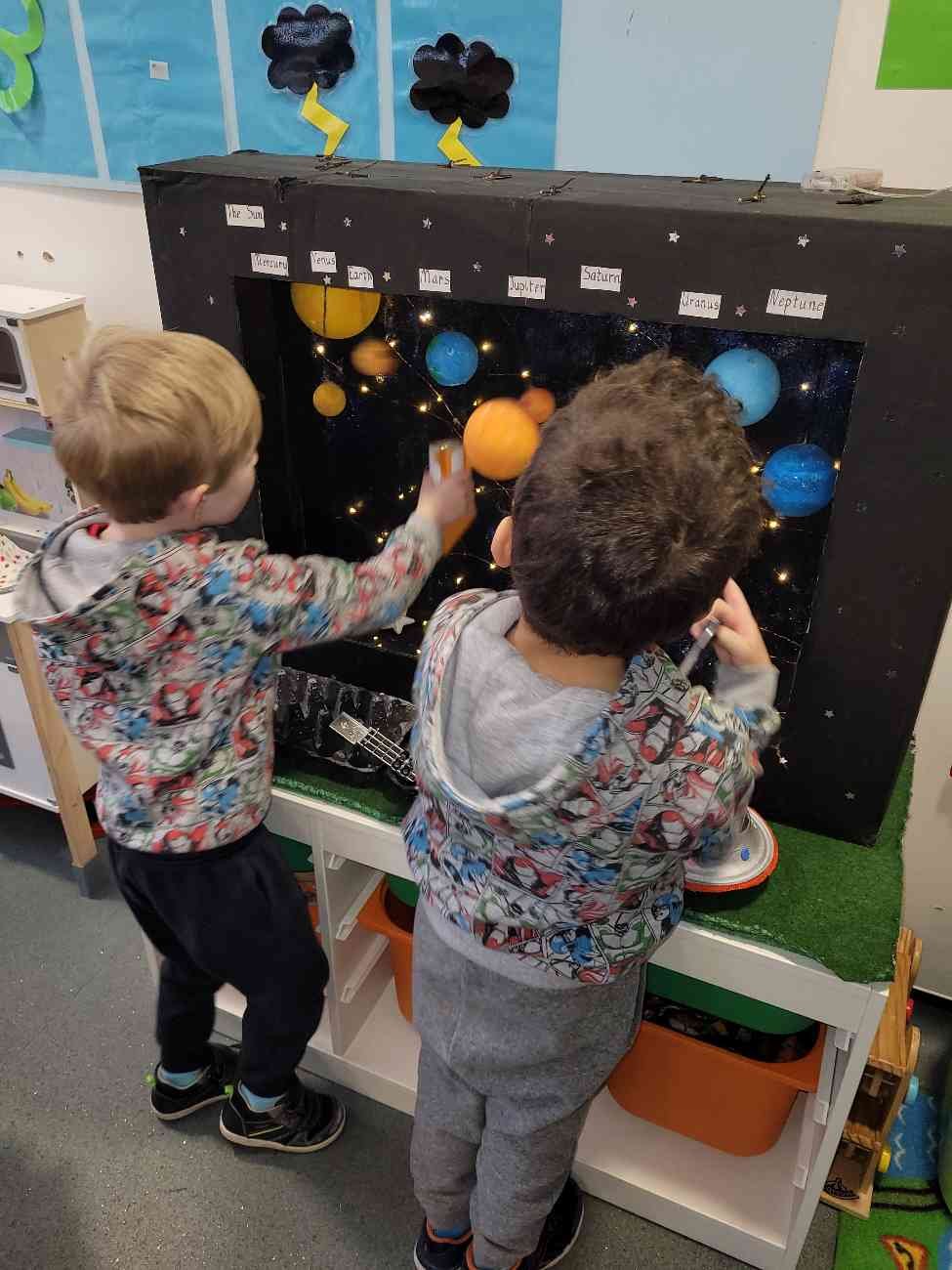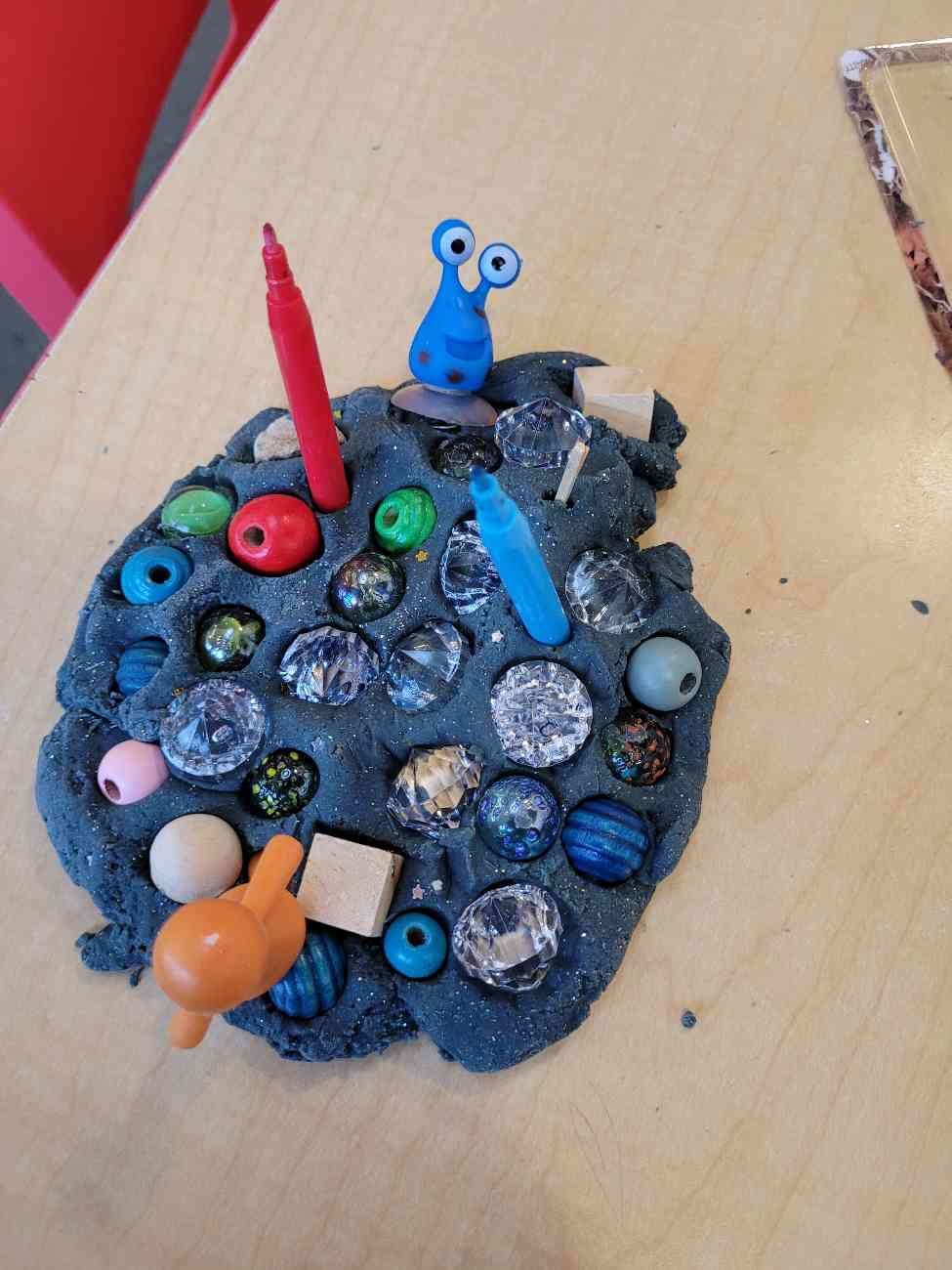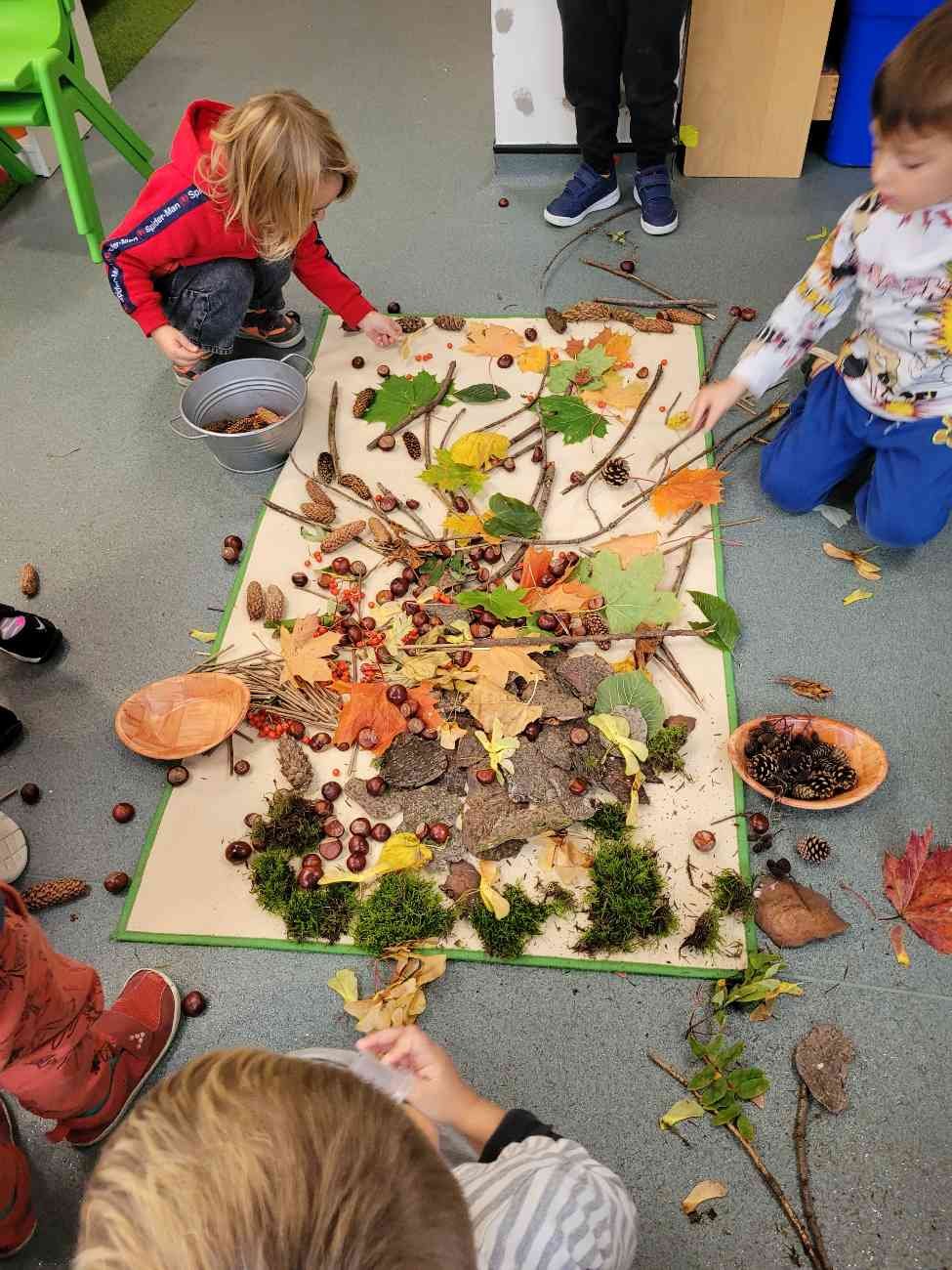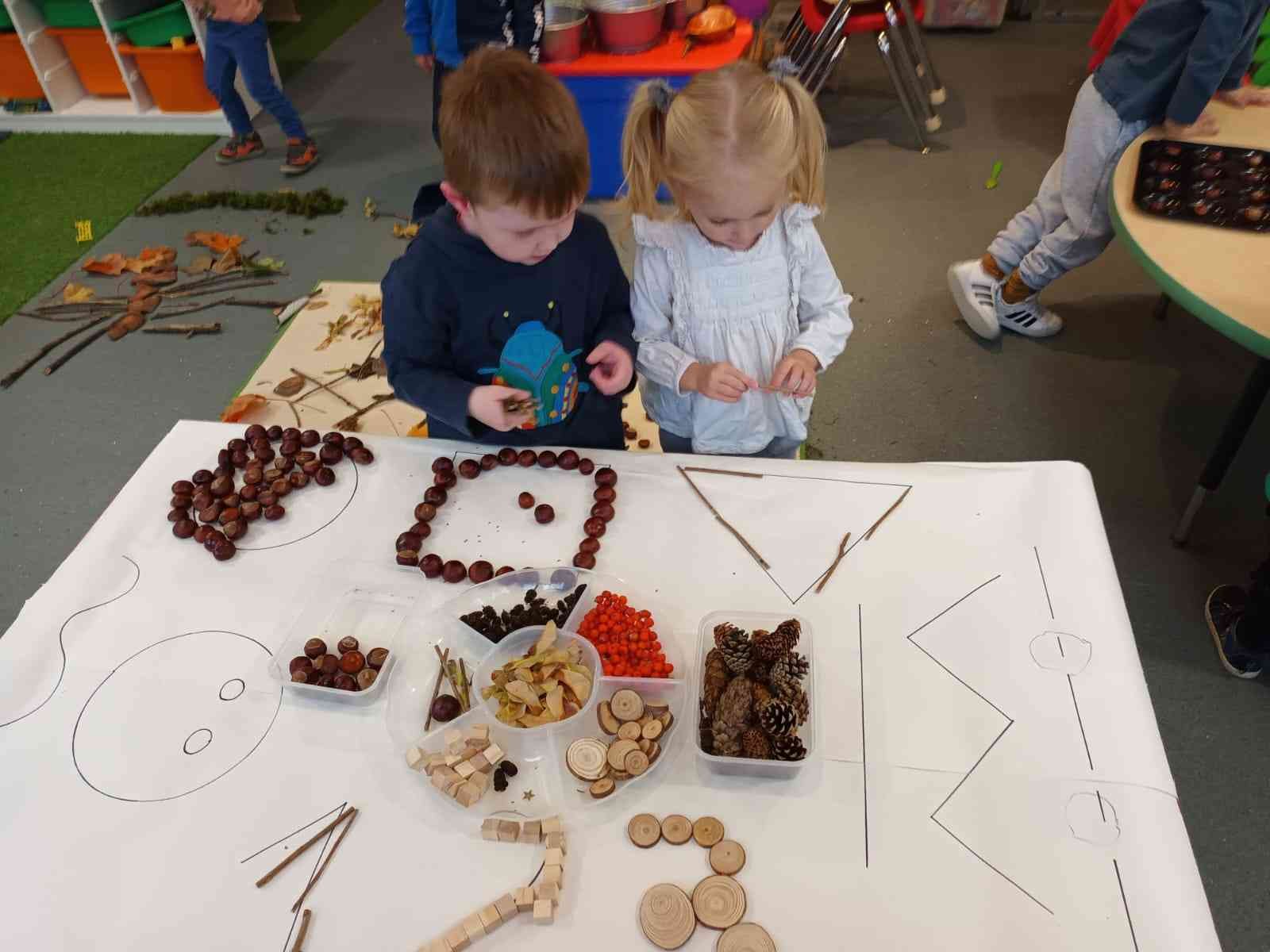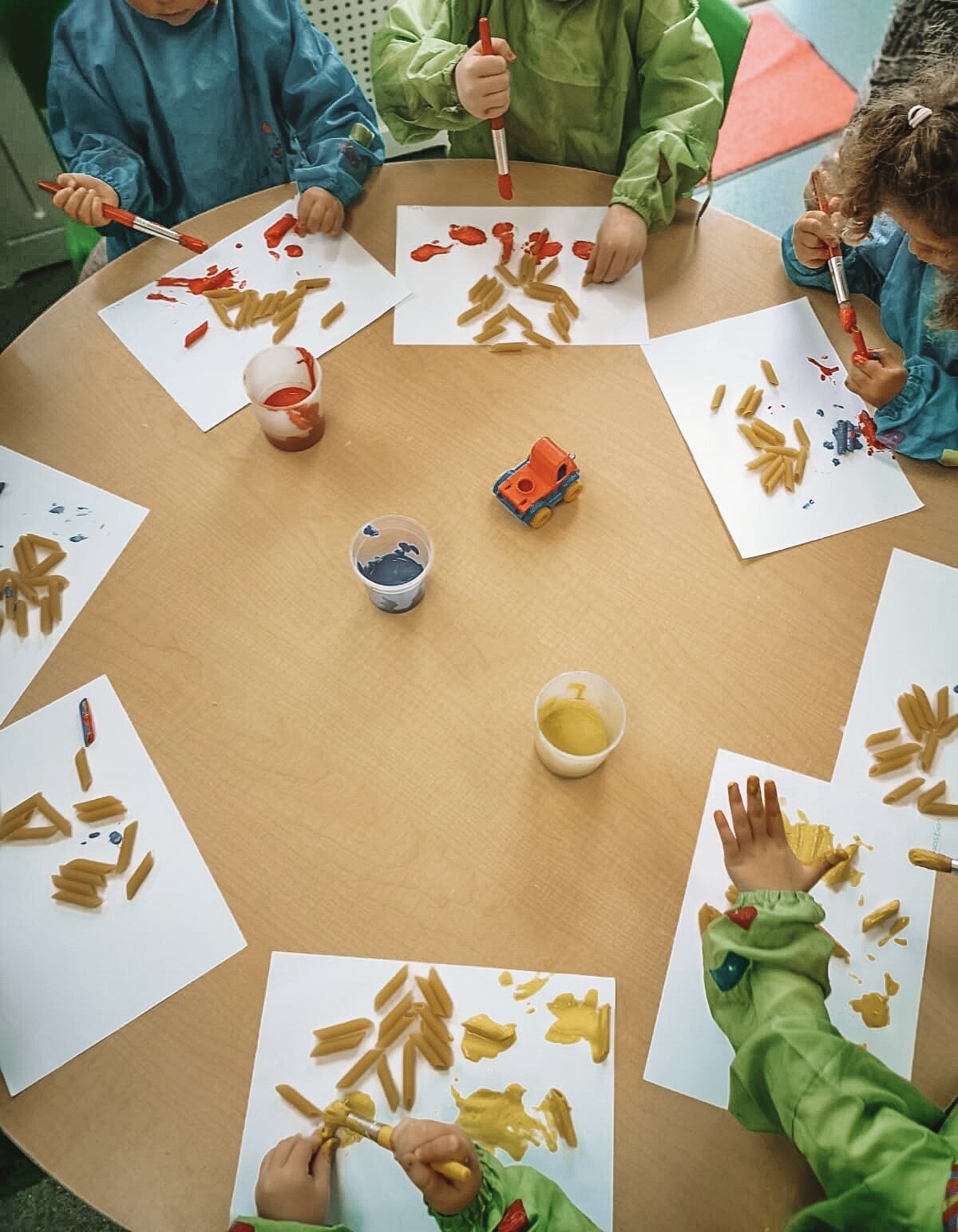Why we highly regard sensory play at Hanahoe’s.
Helps with language skills.
Children’s language skills develop naturally through sensory play. Children learn different ways of communicating emotions, wants and needs through experiences in their environments. By engaging their senses, children learn how to describe what they are doing and how it feels, eventually using more descriptive words to communicate.
Helps with gross motor skills.
Gross motor skills involve sitting, crawling, jumping and running activities that use children’s larger muscles. Sensory play at Hanahoe’s allows plenty of time to practice these skills freely through ball games, various other indoor and outdoor activities.
Helps with fine motor skills.
Sensory play can help your child develop fine motor skills such as tying their shoelaces, zipping up their coats, writing etc. Through tactile activities that focus on building, pouring and mixing, children can build on their ability to use small muscle groups and coordinate movements in a fun natural environment.
Helps with cognitive growth.
Sensory play enables children to ask questions, think about how things work, experiment, and analyse. This means they are naturally working on their problem solving skills through exploration which encourages healthy cognitive growth.
Has a calming effect.
Sensory play is a hugely inclusive form of play, providing stimulation to children who might be feeling sluggish or acting as a calming activity for children who may be hyperactive or struggle to pay attention. Your sensory system is what regulates your overall arousal level and is particularly important for developing children.
Fosters social interaction.
By engaging in sensory play with others, children begin to develop their social skills. They learn how to communicate, troubleshoot and adapt to playing with others.








